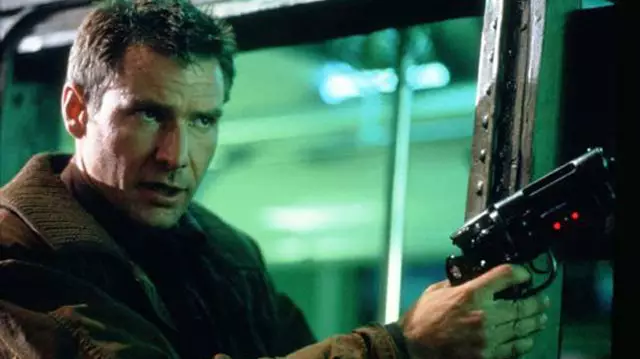Harrison Ford is an actor who has etched his mark in cinematic history, thanks to his roles in some of the most successful film franchises. However, his ascendance to stardom was not a straightforward journey. Initially, Ford was not the marquee name he is recognized as today, an assertion underscored by Ridley Scott, who directed him in the iconic 1982 film, Blade Runner. This reflection leads to a deeper exploration of Ford’s career trajectory and the continued impact he has on the film industry.
Before achieving fame as Rick Deckard in Blade Runner, Ford’s rising star was still in its nascent stages. Scott’s recollection of the skepticism from financiers highlights a time when Ford was only familiar to audiences as Han Solo from the Star Wars saga. Despite having recently reprised the role of the Millennium Falcon pilot, Ford lacked the star power that he would become known for. Scott’s conviction in Ford’s talent, stating “You’re going to find out,” reveals the visionary aspect of casting that often is lost in discussions about Hollywood’s leading men.
A Career Grounded in Iconic Roles
In the years that followed Blade Runner, Ford transitioned from a budding actor to a leading man, marking his territory through standout performances. The Indiana Jones series, one of the highlights of his career, alongside notable films like The Fugitive showcased his versatility and ability to anchor different genres. His commitment to roles that combined action with depth paved the way for him to be one of the most sought-after actors in Hollywood.
With the recent announcement of his debut in the Marvel Cinematic Universe as Red Hulk, Ford continues to demonstrate his adaptability and relevance, proving that a career can evolve and flourish even later in life. His participation not only signifies a new chapter for the actor but also reinforces his status as a brand in film.
The legacy of Ford’s work resonates through his reprisal of Deckard in the 2017 sequel, Blade Runner 2049, affirming the character as a cultural cornerstone. Moreover, Ford’s transition into television with shows like the Yellowstone spin-off, 1923, and the Apple TV+ series, Shrinking, are indicative of a shifting landscape in entertainment where actors cross mediums more frequently. At 82 years old, Ford’s ability to remain relevant and engage with audiences reveals his passion for storytelling as well as the industry’s evolving nature.
Ford himself attributes his drive to the essence of human connection and collaboration with skilled individuals in the filmmaking arena. This passion reflects a genuine love for the craft, allowing him to defy the typical narrative of aging actors fading into obscurity. Instead, Ford embodies a spirit of resilience and creativity, illustrating that stardom is not merely about being at the top but also about a commitment to the art itself and its people.
Harrison Ford’s journey is a testament to the unpredictability of fame and the power of resilience. His ability to reinvent himself, embrace new roles, and connect with audiences leaves an enduring legacy that will be felt for generations.

Leave a Reply